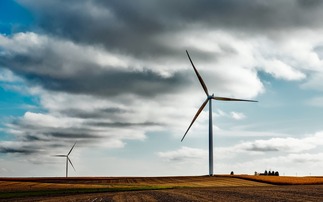Historic US-China climate change agreement promises to deliver huge boost to the global green economy
4. The targets may represent a continuation of green business-as-usual, but the increase in investor and infrastructure certainty is still a big step forward
In some respects the emissions targets set out in the agreement are not as ambitious as they first appear. There are caveats - China "intends" to peak emissions "around" 2030, while making "best efforts" to cut them sooner; the US "intends to achieve" its 2025 target. Meanwhile, peaking Chinese emissions in 2030 are pretty much in line with the slowing emissions growth trajectory the country has been on in recent years and the US is on track to exceed its 2017 target, making the 2025 goal easier than it looks. The targets look like a continuation with the green strategies both governments are already pursuing.
However, the signal the targets send to investors are still vitally important. They represent an important additional challenge to an already suffering coal market and a clear indication that clean technologies can expect a welcoming policy landscape. Moreover, as with all emissions targets they are a floor, not a ceiling. With policy certainty strengthened the onus is on green businesses and clean tech engineers to exceed the targets the politicians have set.
5. The Republicans are going to raise hell
The howls of outrage from Washington DC sparked by this deal will be heard on the other sides of the Pacific and Atlantic. Republican Senate Leader Mitch McConnell wasted no time last night, attacking what he described as an "unrealistic plan" that was part of President Obama's "ideological war on coal".
However, the question remains as to what, if anything, the Republicans can do, beyond making a lot of noise. White House officials are at pains to point out that the new agreement and targets can be honoured through policies delivered via executive actions, meaning the Republican Congress can be by-passed. The GOP is expected to launch various attempts to block the Obama administration's efforts to place emissions limits on power plants. But each and every attempt to overturn the Clean Air Act ruling that enables the new regulations has to date failed, while many of America's largest states are continuing to pursue ambitious green policies with the support of numerous business leaders.
A Republican President would no doubt attempt to tear up the new agreement with China, but a Democrat victory in 2016 would further entrench these targets, particularly given polls are increasingly showing that a majority of Americans back climate action.









